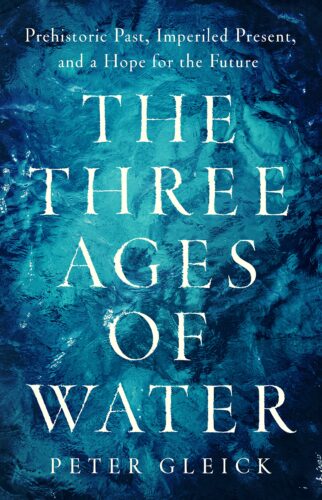Envisioning a New “Water Ethic” for the Engineering Community
Virtual Preview – April 8, 2025
In-Person Summit – May 6-7, 2025
Arizona St. University, Tempe, AZ
Climate change, population and economic growth, equity concerns, and new demands from emerging technologies, as well as legacy issues flowing from past infrastructure failures and shortcomings are transforming society’s ability to satisfy fundamental needs for clean water and sanitation.
These dynamics signal the advent of what author Peter Gleick calls “The Third Age of Water.” This “new age” presents a pressing obligation for the engineering community to fully manifest its commitment to a new “water ethic” as guidance for its stewardship of this vital natural resource on behalf of society.
A two-hour virtual preview will highlight the emergence of this “water ethic.” The following two-day, in-person summit will take a deep dive into what that ethic might look like, and inquire into a set of key imperatives present as this new water age unfolds, including:
- Catalyzing a shift toward a “water conscious culture.” Making water more “visible” and fostering water stewardship.
- Recognizing the “true value (cost) of water.” Moving beyond traditional beneficial use metrics.
- Prioritizing water insecurity and the needs of underserved communities. Addressing affordability challenges and disconnects in funding.
The summit will end by envisioning what water engineers will be celebrated for as they guide society toward a regenerative future in this new age of water.
Registration fee: $750/person ($650/person for three or more registrants from the same organization)
A discounted group hotel rate is available at the Tempe Mission Palms Hotel, which is located a short distance from the summit venue. The cut-off date for the group rate is April 14, 2025. The reservation link is included below.
Register Now Hotel Registration LinkPreliminary Agenda & Reading List:
Envisioning a New “Water Ethic” for the Engineering Community Summit Agenda
Provocateurs:
Peter Gleick. Peter is the author of The Three Ages of Water, the featured pre-reading for the summit. He will offer the kick-off provocation for the in-person summit. Peter is one of the world’s most widely known and cited water experts. He is co-founder of the Pacific Institute, whose vision is to create a world in which society, the economy, and the environment have the water they need to thrive now and in the future.

Brittany Kendrick. Brittany is a Program Manager with Black & Veatch and co-founder of Hydronomy, a climate tech company tackling water scarcity. Brittany describes her experience as having given her a knack for sensing and making sense of water inequalities. In her provocation, she will describe how she has crafted holistic solutions for marginalized communities.
Robert Mace. Robert is Executive Director of The Meadows Center for Water and the Environment at Texas State University and former Deputy Executive Administrator of the Texas Water Development Board. The Meadows Center for Water and the Environment is dedicated to inspiring research, innovation and leadership that ensures clean, abundant water for the environment and all humanity.
Colby Pelegrino. Colby is Deputy General Manager – Resources at the Southern Nevada Water Authority. She supports Colorado River modeling efforts to anticipate changes caused by climate change and reduced flows, and she manages the Water Authority’s water resource portfolio.
Sarah Porter. Saraph is Director of the Kyl Center for Water Policy at Arizona State University. The Kyl Center conducts research and works to build consensus on sound water stewardship for Arizona and the West. She will offer her thoughts on innovative water policies that are shaping the future of water in the West.
Sarah Robinson. Sarah is Senior Program Manager at the US Water Alliance, a national nonprofit advancing policies and programs that build a sustainable water future for all. Sarah has over a decade of experience working in water management, including working at Houston Water and Galveston Bay Foundation. Sarah’s provocation at the virtual preview will highlight the US Water Alliance’s “One-Water” philosophy and its approach to climate action, water equity, and the value of water.
Matt Thomas. Matt is the Executive Director of The Paseo Project. He is an architect and an artist, whose work explores natural and manufactured systems and patterns of the built socio-cultural environment. He was a leader of the Paseo Project’s Acequia Aqui, which sought to create awareness, through creative and artistic events and installations, of the history and value of the acequia system in the Taos area.
Dave White. Dave is a driving force behind Arizona State University’s transformation into a global leader in research and impact. As Associate Vice President of Research Advancement within the ASU Knowledge Enterprise, he shapes research strategies for the Julie Ann Wrigley Global Futures Laboratory, an institution dedicated to envisioning and realizing a thriving future on a healthy planet.
Amber Wutich. Amber is an anthropologist, MacArthur Fellow, Regents and President’s Professor, and Director of the Center for Global Health at Arizona State University. She is an expert on water insecurity and directs the Global Ethnohydrology Study, a cross-cultural study of water knowledge and management in 20+ countries. Her two decades of community-based fieldwork explore how people respond, individually and collectively, to extremely water-scarce conditions.
Virtual Preview Recording
Virtual Preview Provocateur Presentations

